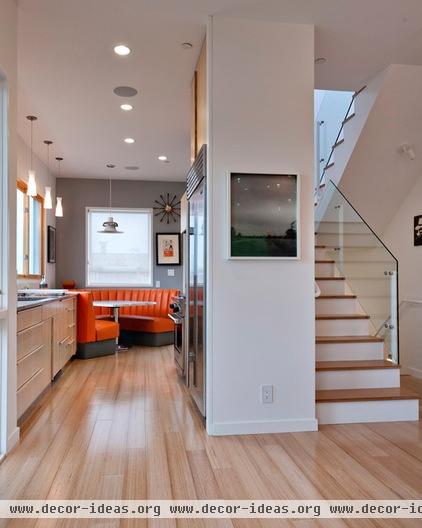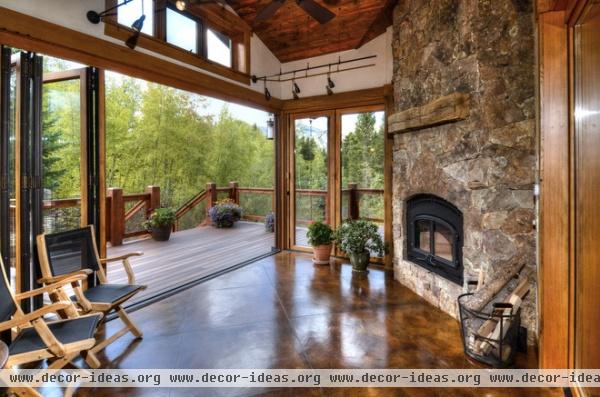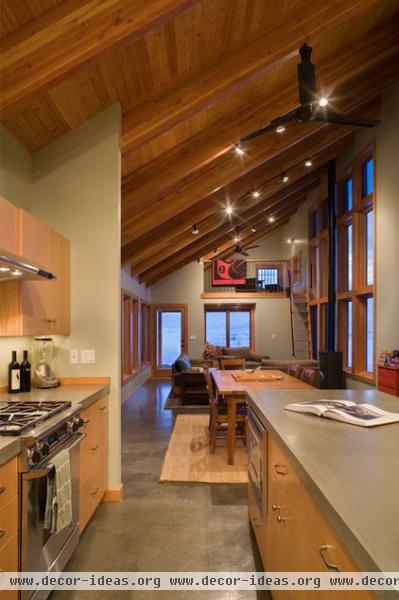How to Add a Radiant Heat System
http://decor-ideas.org 02/20/2014 07:23 Decor Ideas
So you’re thinking about adding radiant heating or cooling to your house. Unless you have particular renovation constraints, you’re most likely going to be looking at a hydronic system — one based on water. Here are some tips to help you get started and some info on why hydronic systems are generally preferred over electric for whole-house projects.

Project: Adding hydronic radiant floor heating to your entire home or major living spaces.
Why: You’ll save energy while increasing your thermal comfort.
It’s a good project for you if: You’re doing a whole-house energy retrofit on a house that is occupied continuously and has a decent thermal envelope with above-average energy efficiency. If your house has poor or standard energy efficiency, radiant heating may not ever provide you with real comfort. If your house is particularly well insulated, you may never get a return on your investment in a radiant system.
Is Radiant Heating or Cooling Right for You?

Who to hire: A general contractor and a plumber can install the system as part of an overall renovation. Make sure you select someone with experience in this particular kind of renovation. The general contractor or an outside energy consultant needs to be experienced enough to understand the effect radiant heating and cooling will have on your energy consumption, based on your house’s thermal envelope.
Cost range: This is a major upgrade and can cost $25 to $30 per square foot for the entire system design and installation. However, keep in mind that a hydronic system has an advantage over an electric system: It can be used for cooling as well as heating.
You can also reap extra savings by combining it with more efficient heat production systems, such as a heat pump or solar water heater. Here in Emilia-Romagna, Italy, for example, one-third of all heat production in a home must be through renewables, a requirement that is best met in underfloor heating by combining a hydronic system with one of these renewable energy systems.

Typical project length: You’ll need a good couple of months to redo all of your floors. You may need to vacate the house, depending on the scope of the project.
Best time to do it: The end of autumn or beginning of winter is a good time to schedule the completion of your work. When the system is started up for the first time, it will be turned up very high for a couple of weeks to allow the parts of the system to adjust properly. The screed (layer of concrete) needs to expand and dry correctly before any flooring is laid on top.

Best flooring types: The thermal conductivity of the flooring material you choose should be high. Tile and concrete floors work best. Many people ask if hardwood can be used as a flooring material over underfloor radiant heating. It’s not ideal, but some wood flooring is designed specifically to be able to handle this kind of system. Look for layered engineered wood as opposed to solid wood planks, and ask to see certification regarding in-slab heating. Otherwise consider using wood-look ceramics, a very popular option in Europe right now.

Keep in mind: There is a lag between when you turn the system on and when you feel the effect. The system runs best at a low temperature and over a continuous, long period of time.
If you use the system for cooling as well as heating, make sure to use it in combination with a dehumidifier. Otherwise when the relative humidity in the room increases, you’ll get condensation on the floor.
I recommend installing a heat sensor for each room, so that each space has individual temperature controls.
First steps: Contact an energy-efficiency consultant, an architect or a general contractor who can do a feasibility study on the effect a radiant system will have on the overall efficiency of your house. Next, request a specific design proposal for the work and get a quote from the contractor. If you get started this spring, you’ll have plenty of time to enjoy the warmth under your feet next winter.
More: Is Radiant Heating or Cooling Right for You?
Related Articles Recommended












